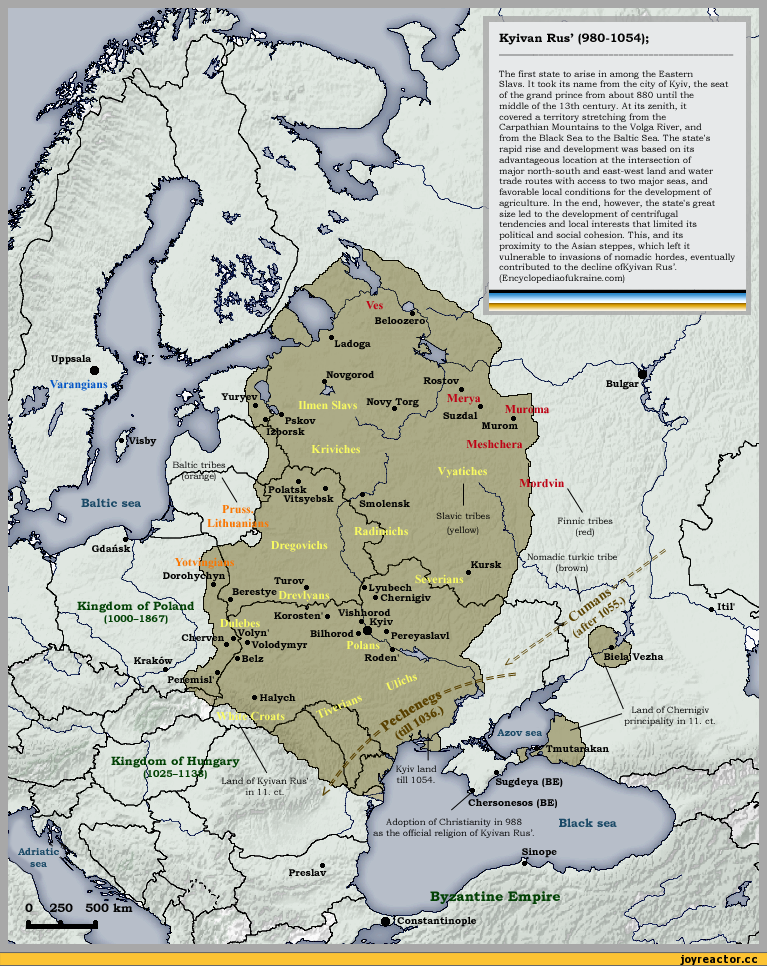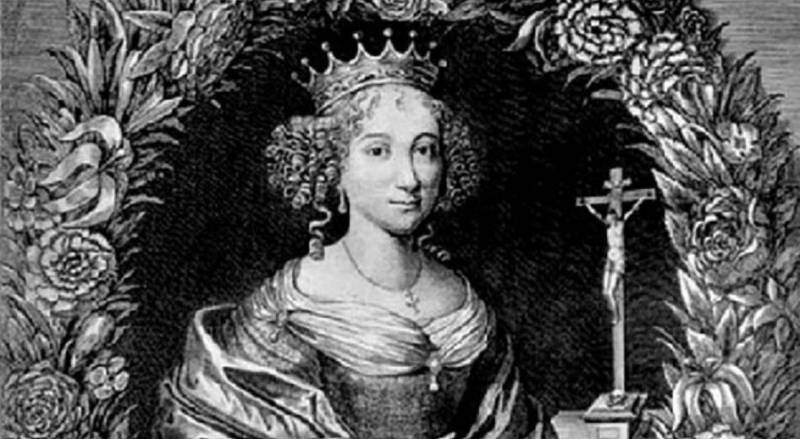On May 29th, in Versailles, during a joint press conference with French president Emmanuel Macron, Russian leader Vladimir Putin said that relations between France and Russia have deep historical roots, referring to Anna of Kyiv, a French queen, and calling her “Russian Anna.” He also said that she was a “daughter of our grand prince Yaroslav the Wise.”“Annexation of territories is impossible without annexation of history,” Oleksandr Sushko, research director of the Institute for Euro-Atlantic Cooperation
Yet, neither Anna nor Yaroslav have any direct links to today’s Russia. Both of them have relation to Kyiv, the capital of today’s Ukraine. In the 11th century Kyiv was a capital of a medieval state that gave birth to at least three contemporary Eastern European countries, and on which Russia now tries to impose its historical “ownership.”

Annа of Kyiv, a French queen who married King Henri I of France, mother of Philippe I of France, was born and raised in Kyiv in the early 11th century. She, indeed, was the daughter of grand prince Yaroslav the Wise, one of the key leaders of medieval Kyivan Rus, a state comprising parts of today’s Ukraine, Belarus, and Russia. Kyivan Rus was at its most glorious times during the rule of Yaroslav, son of grand prince Volodymyr who brought Christianity to this part of Eastern Europe.
Read more: Anna of Kyiv, the French Queen from Kyivan Rus
Putin’s reference to Anne and Yaroslav as “Russian” matches his earlier attempts to interpret Eastern European medieval history in exclusively Russian terms. This has clear geopolitical implications, as earlier Putin “justified” the Russian annexation of Crimea in 2014 with Prince Volodymyr’s “baptism” in Chersoneses, the ancient Greek city whose ruins you can still find in Crimea, in Sevastopol. (Volodymyr too, was a grand prince of Kyiv, and his actual name, Volodymer, is closer to today’s Ukrainian (Volodymyr) than Russian (Vladimir) pronunciation).
Of course, the re-writing of history was used as a political tool during Soviet times, and Putin’s statements seem to reuse old practices. But in fact, they do more than that. Soviet historiography was interpreting Kyivan Rus as a “cradle” of three nations, the Russians, the Ukrainians, and the Belarussians (always in this order). This “multicultural” approach was used to mask the predominance given to Russian culture and Russian language in the USSR. But at least it tried to use this mask and to pretend that all three nations have their part in the Eastern European medieval history.

Today Putin’s political historiography goes far beyond that. The “cradle” legend is broken, and all seems to fall under a grand Russian narrative. If Anne of Kyiv and Yaroslav the Wise are called “Russians,” this implicitly means that Ukrainians or Belarusians have no political history, no statehood heritage, and therefore are not even nations. A good basis for any future political “annexation.”
Read also: How Moscow hijacked the history of Kyivan Rus’
Indeed, annexing history and the symbolic “expropriation” of the past goes hand in hand with Russia’s notorious annexation of Crimea in 2014 and continuous annexation of Donbas ever since. Pretended “ownership” over the past always leads to aspired “ownership” over territories.
Nazis under Hitler claimed that the lands of Eastern Europe were “always theirs” as occupied since long ago by “Aryan” tribes and German colonizers – and therefore should be “liberated” from Jews and Slavs. Fascists under Mussolini believed that the Balkans, Greece, and the Adriatic were “historically” Italian, and therefore old Roman imperial territories should be brought back to a new fascist state. All these “historical references” were used to justify wars that took dozens of millions of human lives in the 20th century.“Putin, in front of the whole French audience, cynically ‘expropriated’ Anne of Kyiv and turned it into ownership of the Russian Federation, as he did earlier with Crimea,” Oksana Zabuzhko, prominent Ukrainian writer
These traps and tragedies should not be repeated. Holocaust is still a warning, reminds Timothy Snyder; and old clichés from World War II that used archaic history as a political tool and justification for military expansion should remain a warning too. History is not an ideological manual; it leaves us with multiple narratives and memories, which we have to study and learn, without manipulation.
Indeed, history is bigger than our interpretations, it is certainly bigger than rulers obsessed with expansion.
When history is annexed and used as a weapon, this cannot be tolerated.
[hr]Written by Volodymyr Yermolenko, Internews Ukraine, for the UkraineWorld Group
Read more:
- Putin’s ‘appropriation’ of medieval Ukrainian princess reflects more than historical arrogance
- Anna of Kyiv, the French Queen from Kyivan Rus
- Stolen ancient viking’s sword from the dawn of Kyivan Rus comes back home to Ukraine
- Ukraine and Russia “share a long and common history” FAQ
- How Moscow hijacked the history of Kyivan Rus’
- Ukrainian conflict is between ‘heirs of Kyivan Rus’ and ‘heirs of Golden Horde’
- From Kyivan Rus to EuroMaidan…
- Ukrainian parliament mulls requiring officials to call the Russian state ‘Muscovy’
- Tatar historian: ‘Russians are no more European than are the Tatars’
- Know your refutations: 5 myths that are used to promote Russia’s war in Ukraine | Infographic
- Putin’s twisted imperial logic: The (many) historical claims on Russian lands




